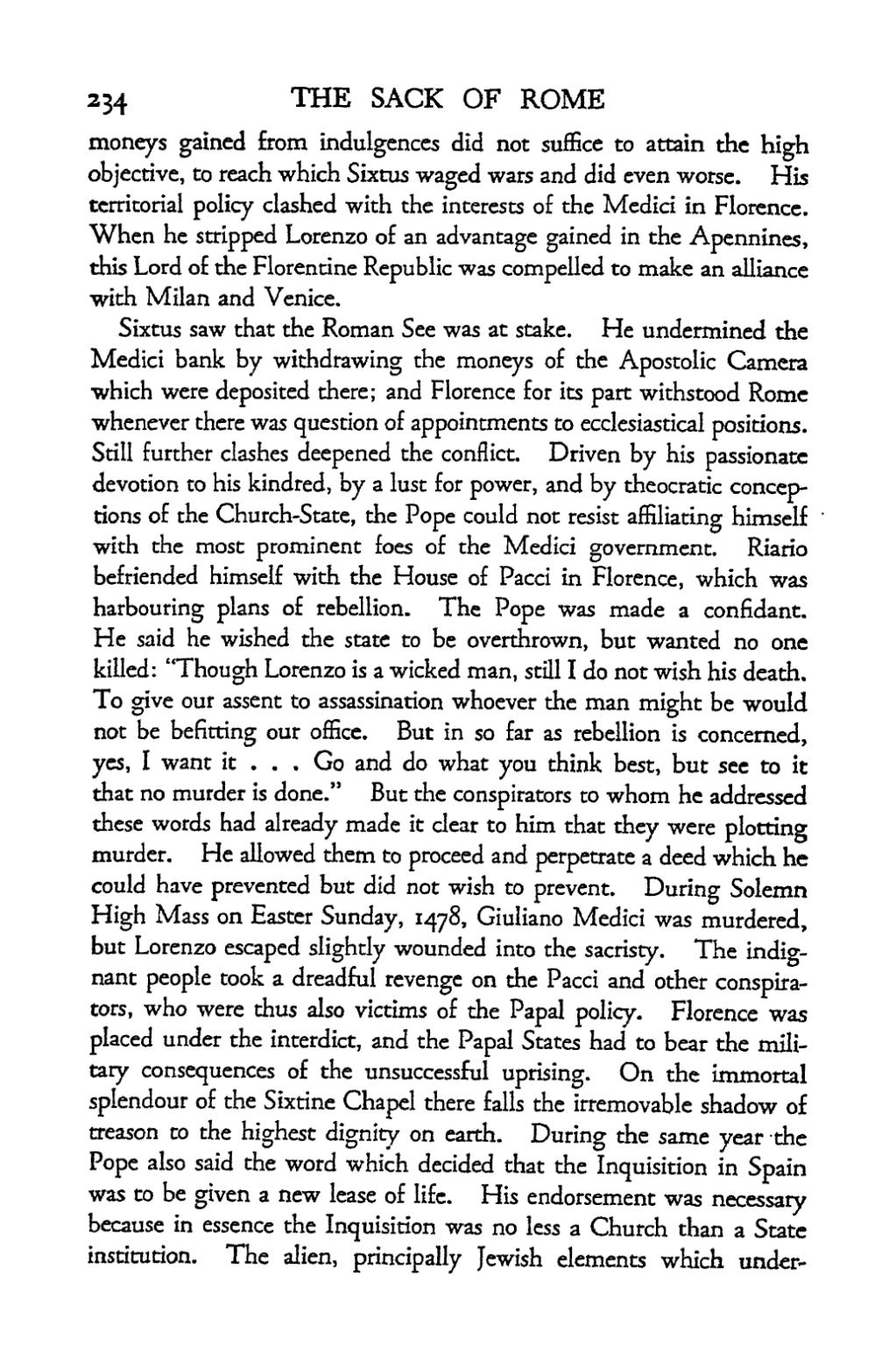E SACK F ROME
moneys gained from indulgences did not suffice to attain the high objective, to reach which Sixtus waged wars and did even worse. His territorial policy clashed with the interests of the Medici in Florence. When he stripped Lorenzo of an advantage gained in the Apennines, this Lord of the Florentine Republic was compelled to make an alliance with Milan and Venice.
Sixtus saw that the Roman See was at stake. He undermined the Medici bank by withdrawing the moneys of the Apostolic Camera which were deposited there; and Florence for its part withstood Rome whenever there was question of appointments to ecclesiastical positions. Still further clashes deepened the conflict. Driven by his passionate devotion to his kindred, by a lust for power, and by theocratic concep- tions of the Church-State, the Pope could not resist affiliating himself with the most prominent foes of the Medici government. Riario befriended himself with the House of Pacci in Florence, which was harbouring plans of rebellion. The Pope was made a confidant. He said he wished the state to be overthrown, but wanted no one killed: "Though Lorenzo is a wicked man, still I do not wish his death. To give our assent to assassination whoever the man might be would not be befitting our office. But in so far as rebellion is concerned, yes, I want it ... Go and do what you think best, but see to it that no murder is done." But the conspirators to whom he addressed these words had already made it clear to him that they were plotting murder. He allowed them to proceed and perpetrate a deed which he could have prevented but did not wish to prevent. During Solemn High Mass on Easter Sunday, 1478, Giuliano Medici was murdered, but Lorenzo escaped slightly wounded into the sacristy. The indig- nant people took a dreadful revenge on the Pacci and other conspira- tors, who were thus also victims of the Papal policy. Florence was placed under the interdict, and the Papal States had to bear the mili- tary consequences of the unsuccessful uprising. On the immortal splendour of the Sixtine Chapel there falls the irremovable shadow of treason to the highest dignity on earth. During the same year -the Pope also said the word which decided that the Inquisition in Spain was to be given a new lease of life. His endorsement was necessary because in essence the Inquisition was no less a Church than a State institution. The alien, principally Jewish elements which under-
'THE
